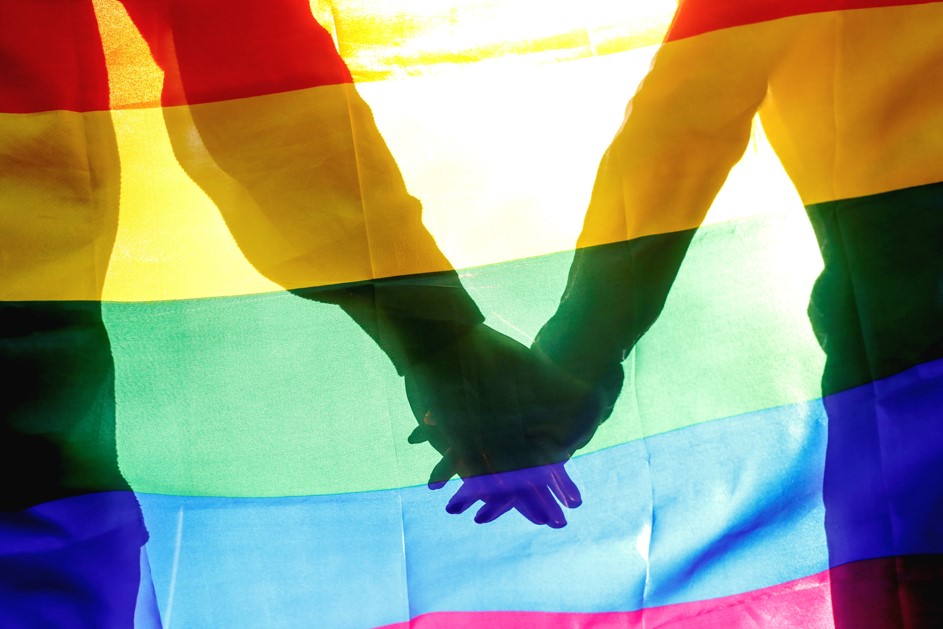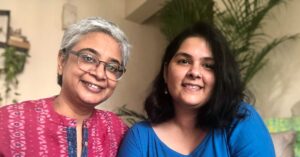Still a long walk to equal rights for LGBTQ in India

Battle for equality appears to be an uphill task for LGBTQ in India with state opposing same-sex marriage on grounds of culture
Armit Puri and Gagan Das’s love story is like anyone else’s. Based in Jaipur, Rajasthan, both engineers met at work, fell in love and have been living together for four years now. But as a same-sex couple in India, their relationship was a crime until a 2018 ruling by the Supreme Court.
Despite that landmark judgment decriminalising Section 377 of the Indian Penal Code, their relationship cannot have any legal status in the country, making it difficult to transfer property rights, right to make critical medical decisions for each other in case of incapacitation. In short, enjoy all the rights that heterosexual married couples in India take for granted, they say.
About 300 km away from Jaipur, in New Delhi’s Kalkaji lives another couple similar to them. For the past eight years, mental health professionals Kavita Arora and Ankita Khanna have lived together, shared finances, gone on vacation with their parents and taken care of each other when ill.
In October last year, they went a step further to try to legitimise their relationship and petitioned Delhi High Court for the constitutional right to marry, arguing that without official recognition, they were “strangers in law.”
Case and centre’s reply
Their petition, along with that of Vaibhav Jain and Parag Vijay Mehta, who got married in the United States in 2017, but were denied registration of their marriage under the Foreign Marriage Act at the Consulate General of India in New York in 2020, was heard by the court on January 8.
However, the government has strongly opposed the petition and the Centre’s reply, which became public on February 25, has only pushed the LGBTQ’s cause further behind, according to the activists.
In its affidavit, the government said that there existed a “legitimate state interest” in limiting the recognition of marriage to persons of the opposite sex. Permitting same-sex couples to marry would cause “complete havoc with the delicate balance of personal laws in the country”.
The Centre further told Delhi High Court that decriminalisation of Section 377 of the Indian Penal Code does not automatically translate to the right for same-sex couples to marry. “In our country, despite statutory recognition, marriage depends upon age-old customs, rituals, practices, cultural ethos and societal values,” it said.
The division bench of Justices Rajiv Sahai Endlaw and Amit Bansal has listed the case for the next hearing on April 20.
‘What’s Indian culture?’ ask LGBTQ activists
India’s LGBTQ community disputes the government’s claims that same-sex marriages are not sanctioned by Indian culture or rituals. They cite Indian mythology, art and folklore with their many depictions of homosexuality and intersex people.
They also say that there is no uniform law for marriages in India. Marriages are registered under specific acts such as the Hindu Marriage Act, the Christian Marriage Act, Muslim personal law and the Special Marriages Act. There have even been modern instances of trans couples getting married in religious ceremonies in India.
Same-sex relations and gender fluidity feature prominently in ancient Indian texts and sculptures. The law that criminalised “carnal intercourse against the order of nature” was put into place by British colonial rulers in 1861, says Puri from Jaipur.
“Which culture they are talking about? The point is that queer community is not limited only to any specific religion or group therefore, no one will hinder the recognition of marriage in the name of values and culture if the marriage is registered under the Special Marriage Act,” Gagan Das, who is also an equal rights activist, tells Media India Group.
Though they have been living together, they say that lack of legal recognition makes many of the aspects of normalising their relationship increasingly difficult in bureaucracy-laden India. “It started with the refusal by banks to let us open a joint account. Then, we had a hard time establishing a permanent address for both of us after we moved in together. Every official we approached questioned our relationship, asking if we were brothers, cousins or landlord-tenant,” he adds.
From the legal purview
Article 15 of the Indian constitution says that the state shall not discriminate on any grounds of religion, race, caste, sex, place of birth against any citizen.
The petitions, quoting this article, argued that the non-recognition of marriage between LGBTQ persons discriminated against them and violated the fundamental rights of liberty, equality and right to live a dignified life’, guaranteed to them by the Supreme Court judgment, Navtej Johar vs Union of India, which decriminalised adult, consensual same-sex relations in 2018.
However, a Patna High Court lawyer agrees with the Centre’s response on the issue and says that changes in the traditional system of marriage will create havoc, as stated by the Centre. “We have other laws built on the basis that only a biological man and women can get married. Adoption laws, inheritance laws and many others will become meaningless if we allow same-sex couples to marry. As a country we cannot allow this to happen,” he says.
He also argues that in order to maintain harmony in society, it is important to understand the values a society holds. Allowing marriage is no guarantee for ‘social acceptability’, which the queer community is looking for in India.
Another advocate, Anand Sharma, who practices in Delhi High Court supports the legitimisation of same-sex marriage. “The marriage officer would have solemnised the marriage of any similarly placed opposite-sex couple. Sexual orientation discrimination is constitutionally prohibited under Article 15, but the petitioners were refused the right to marry a person of their choice on grounds of their sexual orientation alone,” Sharma tells Media India Group.
He goes on to say that constitutional rights are different from what is socially acceptable. Waiting for societal acceptance might delay equality. “The society is not going to rush to embrace gay marriages but that’s not what we are necessarily looking for. It is a gradual process. Our priority is to provide equal rights guaranteed by the law, even if society does not celebrate it, like interreligious marriages or not marrying at all,” he explains.
Long fight ahead
Pooja Mehra, a member of the Naz Foundation, fighting for LGBTQ rights in India says that when section 377 of IPC was scrapped by the Supreme Court of India, the most significant observation was made by Justice Chandrachud, in which he specifically held that members of the LGBT community “are entitled, as all other citizens, to full range of constitutional rights including the liberties protected by the Constitution” and are entitled to equal citizenship and “equal protection of the law.”
Therefore, once members of the LGBT community are entitled to the full range of constitutional rights, it is beyond doubt that the fundamental right to marry a person of one’s own choice has to be conferred on same-sex couples intending to marry, she explains.
“Economic rights, adoption rights and protection against domestic violence are just some of the things that happen within the purview of marriage. Legalising gay marriage will afford these rights to same-sex couples as well,” Mehra adds.
However, the battle for equality appears to be an uphill task, with the state clearly opposing such petitions on the ground that Indian ethos and culture do not recognise same-sex marriages. Nonetheless, 29-years-old Das, 33-year-old Puri, Mehra, lawyers like Sharma and many members of India’s LGBTQ community remain optimistic. At a minimum, they say, the case has brought the topic into the open in a country where LGBTQ issues are still largely considered taboo.
“We are not seeing this as an event but as a movement,” adds Mehra. “And movements can’t be quantified by time. This is the beginning of what could be a years-long legal battle for marriage equality for the more than 2.5 million Indians who identify as LGBTQ,” she says.










